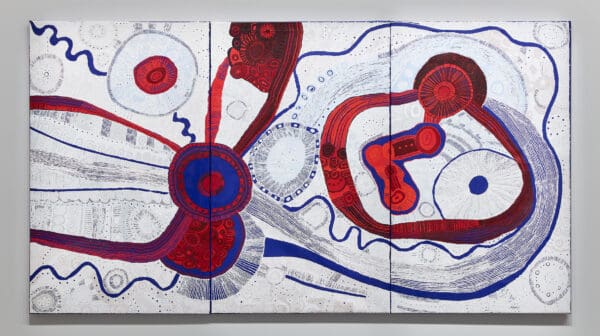
Life Cycles with Betty Kuntiwa Pumani
The paintings of Betty Kuntiwa Pumani form a part of a larger, living archive on Antaṟa, her mother’s Country. More than maps, they speak to ancestral songlines, place and ceremony.

Richard Bell @52ARTISTS52ACTIONS
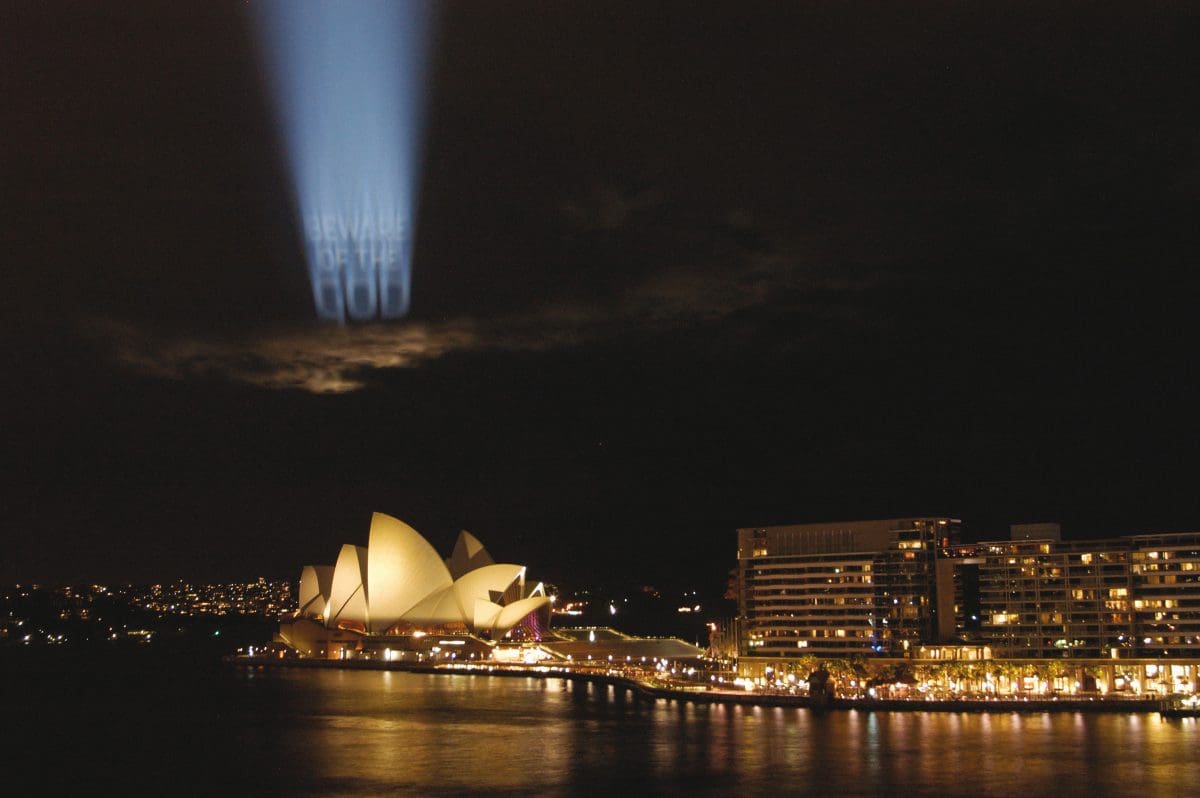
Deborah Kelly, Beware of the God, 2005. Courtesy the artist.
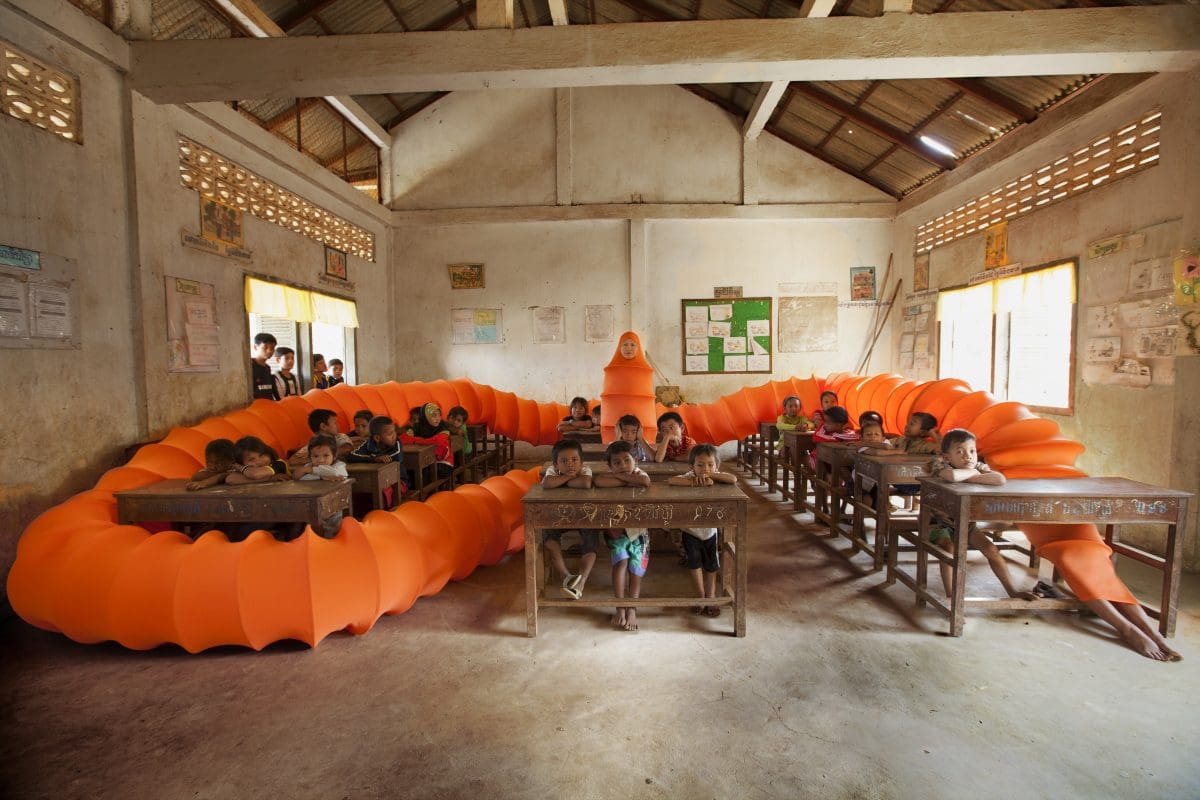
Anida Yoeu Ali, The Buddhist Bug series, 2014. Courtesy the artist.
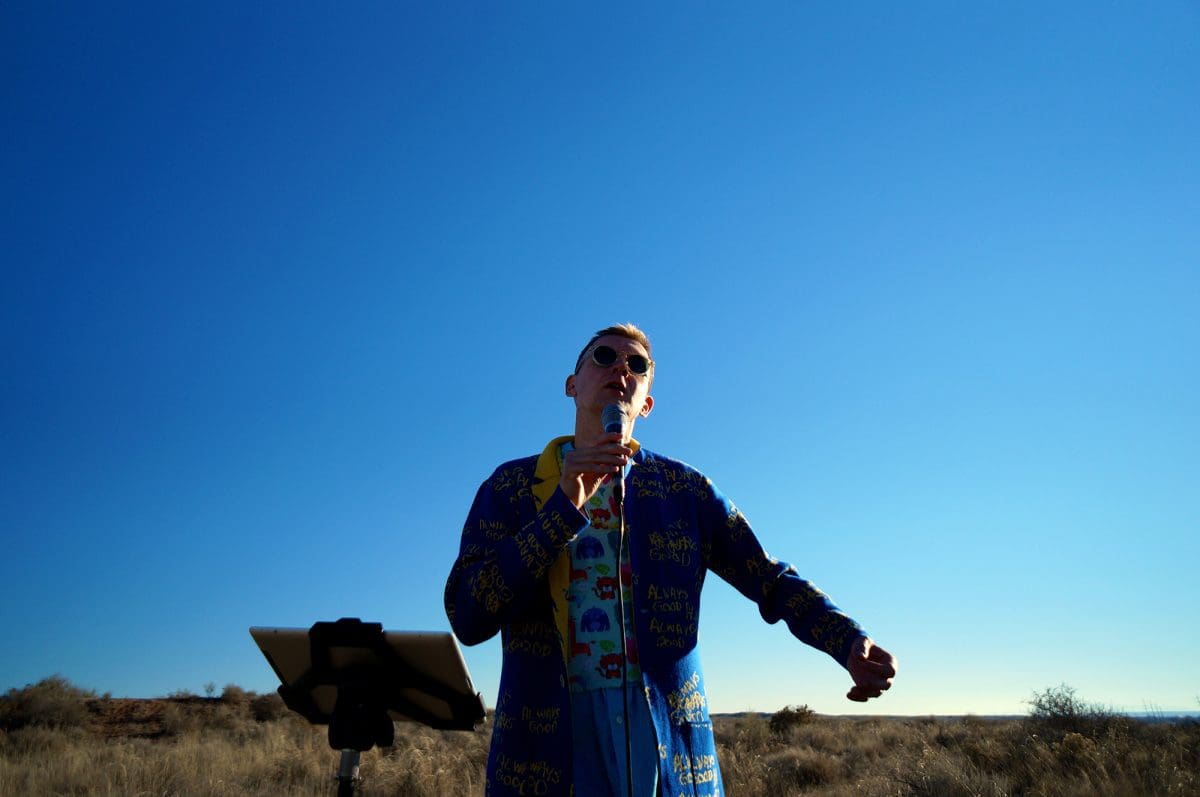
Samsom Young, The Coffee Cantata (Institute of Fictional Ethnomusicology), 2015, performance in collaboration with Michael Schiefel and Priman Lee. Courtesy of the artist and Edouard Malingue Gallery Hong Kong.
Artspace is embarking on a yearlong project with no gallery, no borders and no holds barred. Launched this month, 52 Artists 52 Actions aims to agitate how and where art can be presented, and the role of the artist in complex and tumultuous times.
Over the course of a year, one new artist a week undertakes an ‘action’ which they will present on an Instagram account and website created especially for the project, culminating in a publication produced by Thames and Hudson. The artists, from diverse locations in Asia and Oceania, create works within their local communities with the ‘action’ taking diverse forms including a performance, an image, a dinner, or an intervention.
The first action, by Australian artist Richard Bell, started on 6 January. Turkish artist Hera Büyüktaşçıyan is next up, then Seoul-based collective Young-Hae Chang Heavy Industries.
Alexie Glass-Kantor, the director of Artspace and instigator of the project says, “I’m really interested in thinking about ways and models that Australia can develop new collaborative forms, in developing and commissioning artists from across the region in conversation with Australian artists, how we can think through different curatorial models, and strategies to use alternative platforms for creating new work.”
A Kickstarter campaign was a launched in March 2017 with 10 of the 52 artists confirmed, including Australians Vernon Ah Kee and Deborah Kelly; Turkish artist Hera Büyüktaşçıyan Hit Man Gurung from Nepal; Pio Abad from Philippines/UK, and a host of other artists from locations as far-flung as Cambodia and Pakistan. With the campaign exceeding its fundraising target, additional artists were commissioned.
The artists chosen explore diverse issues specific to their communities. Hit Man Gurung from Nepal looks at migrant workers and displaced people working in structures of economic disparity. His practice touches on how we deal with the mass migration of people seeking employment and stability for their families in an unequal economic environment. Anida Yoeu Ali, a Cambodian artist based between the US and Cambodia, tests identity and persona in public spaces through relationally engaged performances.
Pio Abad, an artist based between the Philippines and the United Kingdom, will make work addressing political issues specific to the Philippines that speak to global phenomena. Specifically, he will explore recent attempts to whitewash the history of the Marcos dictatorship, in the context of Rodrigo Duterte’s current declaration of martial law and Bongbong Marcos’ attempts to capture the vice presidency. Abad told Art Guide, “What I have found most appalling from recent events and what has given me an even greater impetus to continue making my work, has been the flagrant attempts to rewrite chapters in recent history. In the Philippines, there has been a concerted effort to disregard the incontrovertible evidence of Imelda and Ferdinand Marcos’ corruption, brutality and vanity in favour of alternative facts that seek to embolden Duterte’s own dictatorial tendencies. These stunning acts of revisionism are being repeated globally, from Donald Trump’s Twitter feed to David Cameron’s refusal to take responsibility for the mess of Brexit.”
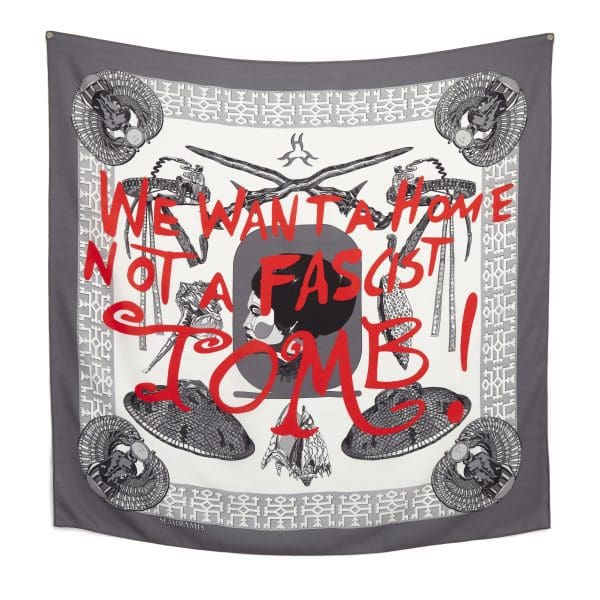
It is fitting that social and politically engaged art, which has a desire to communicate to a wide audience, is presented on the geographically accessible platform of Instagram.
It also allows for the ‘action’ to remain embedded in the artist’s community as opposed to being presented within the white cube space.
The project also aims to map and archive art practices in Asia and Oceania, which will be cemented on the website and print publication. Glass-Kantor says, “As a curator and someone working in the region for 15 years now, a lot of people approach me and approach Artspace asking for recommendations of artists working in different regions across Asia and want access to these networks that we have. Being able to commission and build a cumulative archive of socially engaged political actions by artists, from a breadth of countries, mapping the region from Turkey to Samoa, and really being able to share the kind of research we are doing around artists practices but also be able to support artists to make new work, seemed like an exciting opportunity.”
52 Artists 52 Actions
Artspace
6 January 2018 – January 2019